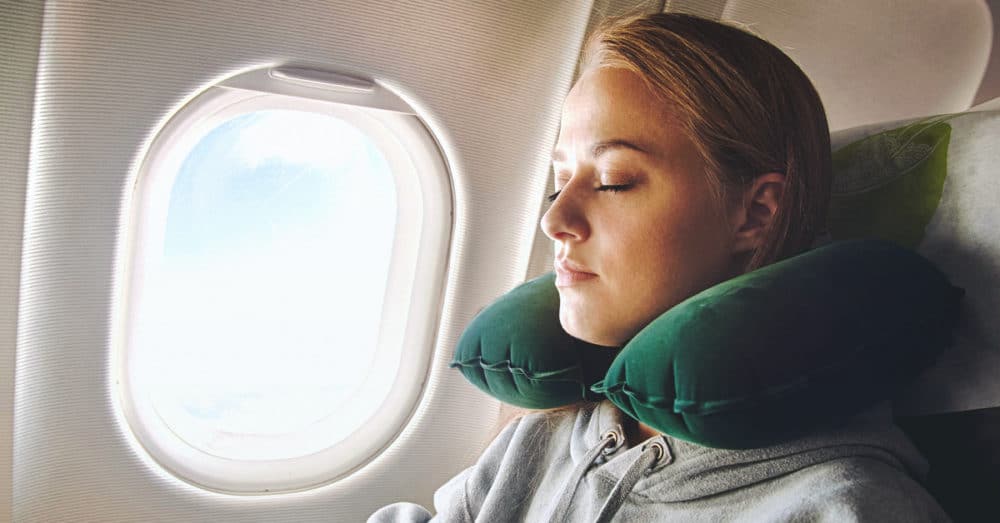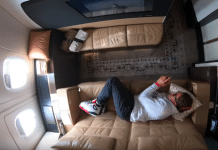
Travelling is a key part of many people’s everyday life, especially that of businessmen and wanderlusts. When your passion for travelling or business matters take you to a far-off place, you need to be at the top of your mental and physical health to make the most of the trip. However, when you travel so far across time zones you are bound to experience some disturbances in your sleep patterns. This is why new travelers should learn how to avoid jet lag by understanding the full impact of it as soon as possible in their life.
When asked to define Jetlag, you may often hear people say that it is the tiredness, loss of appetite, headache, and fatigue that one goes through when subjected to remain seated in long flights. But the way we define jet lag in the terms of travelling is a little more than that- jet lag may inevitably ruin your trip and may even disrupt your sleep health once you return home. This is why we have compiled a list of tips that will help you adjust to the new sleep patterns and help you understand how to prepare for jet lag.
#01 Things to consider while booking
Jet lag is every traveler’s nightmare, especially when you are travelling west to east through multiple time zones because this advances the body’s internal clock and shortens the day for travelers. Make sure that you book your flight in a way that you reach your destination at the time around which you normally wake up. Try to book direct flights and not the ones that have layovers as this can make it even more difficult to adjust to the new sleep patterns.
#02 Prepare beforehand
Set your bedroom’s clock to the time zone of your destination and gradually set your sleep schedule in accordance with the new time zone. Start this change in sleep schedule at least 3 to 4 days in advance so that the shift is not too abrupt. Maintain a good uninterrupted 7 to 8 hours of sleep in the night for a restful experience. Most successful people’s sleeping habits such as that of Mark Zuckerberg, Bill Gates, Jeff Bezos, etc., show that they sleep for about 7 to 8 hours in the night. Don’t forget to pack a pair of noise cancelling earplugs, an eye mask, a sleep pillow and a comfortable sheet so that you can counter unfavorable sleeping environment during the travel.
#03 Sleep wisely:
Make sure that you receive a restful night of sleep in the flight when you are supposed to arrive in the day. Set your watch to the time zone of your destination so that you continue your new sleep schedule that you have been practicing even in the flight. Wear clothes that are comfortable and adjust the overhead air outlet and lights in a way that they do not interrupt your sleep at any point. However, if you happen to arrive at your destination past evening, it is recommended that you stay awake throughout the flight.
#04 Light exposure is important
The amount of light exposure you receive in your flight and after you get down can have a massive effect on your circadian rhythm that controls your sleep-wake cycle. Considering you arrive at your destination in the daytime, spend a considerable amount of time outside so that your body can benefit from the ample sunlight you receive. Go for a window seat if you are traveling in the day so that you can make use of the natural light that seeps in through the window. However, if your flight arrives in the later part of the day, try to stay away from bright lights or electronics that emit blue light as they can block the production of melatonin in the body.
#05 Stay hydrated
Consuming the right fluids and leaving out the ones that can contribute towards jet lag is a key part of your air travel. Take ample amount of water in the daytime so that you do not end up getting dehydrated as this is a common problem with flights traveling through high altitude. Keep in mind that the amount of water intake should gradually be lowered after sunset as you do not want to interrupt your night sleep by making too many toilet trips.
#06 Avoid caffeine and alcohol
It is common for idle passengers to regularly consume caffeinated drinks in the flight or at airports to pass time and feel refreshed. However, this can further deteriorate the effect of jet lag which is why you should stay away from drinks that can create a stimulating effect on your body such as tea and coffee. Such caffeinated products can elevate your alertness and make it tough to fall asleep in the night. For the same reasons, you should avoid having alcohol on the flight as it can have a detrimental effect on the later part of your sleep and leave you feeling groggy and tired the next day.
#07 Melatonin supplements
The natural sleep hormone of the body melatonin, is also available in the form of supplements that are considered good for a short-term use. Melatonin is also the perfect sleep aid for sleeping travel as it helps the body’s pineal gland to produce this sleep-inducing hormone. Melatonin content in the body can also be increased by consuming food that is rich in the nutrients such as bananas, kiwis, eggs, fatty fish, yoghurt, etc.
Bottom line:
Whether you are going on a road trip, running a marathon or travelling across time zones, maintaining a good sleep health is absolutely essential. Make sure that you do not feel tired, hungry, dehydrated, etc., before boarding a flight as this can worsen the effect of jet lag. We hope that the steps mentioned above help you counter jet lag and make you adjust to new sleep patterns while traveling.





























